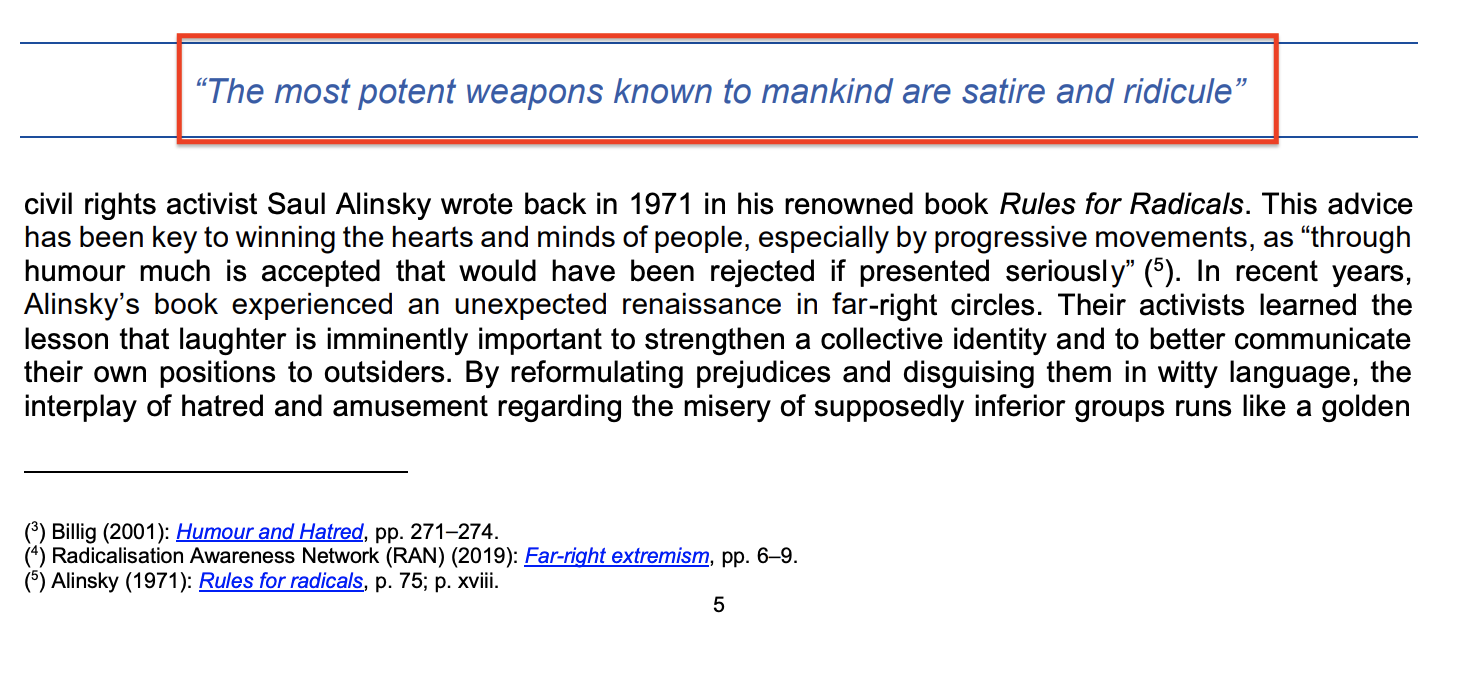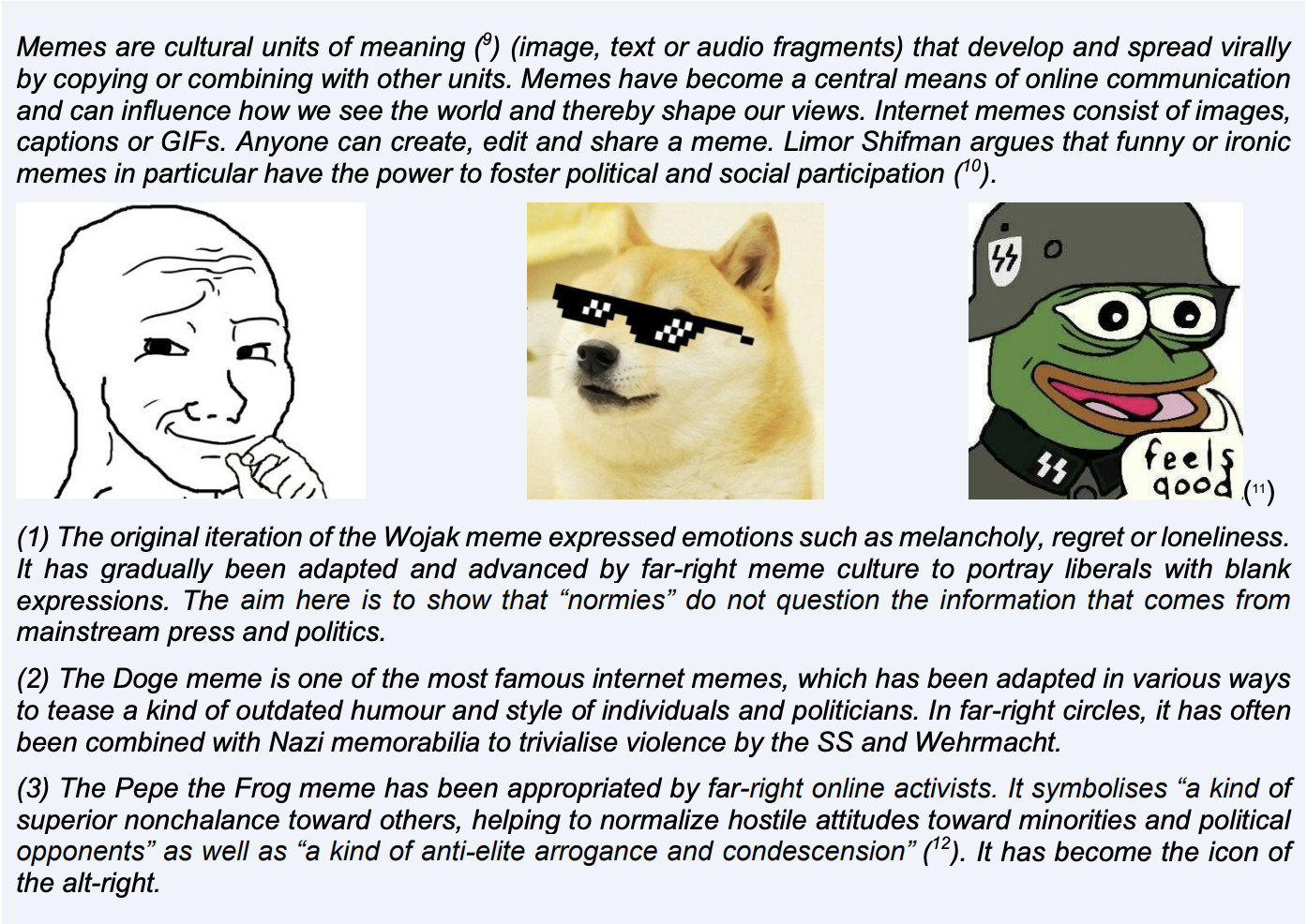The European Union (EU) released a non-satirical report this week offering that humor, including the sharing of memes, could be a sign your peer is a “far-right extremist.”
In partnership with the Radicalisation Awareness Network, an EU-funded group involved with “countering violent extremism” through “surveillance and security,” the European Commission published an 18-page report titled “It’s not funny anymore. Far-right extremists’ use of humour.”
“Humour has become a central weapon of extremist movements to subvert open societies and to lower the threshold towards violence,” the report states. “Especially within the context of a recent wave of far-right terrorist attacks, we witness ‘playful’ ways in communicating racist ideologies. …This paper scrutinises how humour functions as a potential factor in terms of influencing far-right extremist violence.”
In block quotes on page 5 of the report, it states that “The most potent weapons known to mankind are satire and ridicule.”

A significant portion of the EU’s humor document discusses memes and how they are supposedly indicative of right-wing extremism. According to the EU, the far-right “put[s] a lot of time and energy into meme production” to “spread their ideology.”
Some of the supposedly racist memes co-opted by extremists that EU references include “Pepe the Frog,” “The Dog meme,” and “the Wojak meme.” For instance, “Pepe the Frog” is said to have been “appropriated” to become “the icon of the alt-right.”

In recommendations for approaching such identified extremism, the commission argues for the deplatforming of accounts from social media. There is no direct reference to left-wing extremism and whether individuals who promote radical ideas on all sides of the political aisle ought to face consequences.
“Once literacy on the extremist underpinnings of strategic humour is established, the next step is to closely monitor dynamics around far-right meme cultures,” the report states. “Online cultures quickly develop into extremist movements, as seen in the conspiracy cult around QAnon and the anti-government militia in the United States known as the boogaloo movement.”
Under the “resources” section at the end of the report, several websites are listed including Urban Dictionary, Tech Against Terrorism, Meme War Weekly, KnowYourMeme, and the CARR Guide to Online Radical-Right Symbols, Slogans and Slurs.
The authors are leftists Reem Ahmed, a Ph.D. candidate, and Maik Fielitz, a doctoral fellow studying “far-right movements, digital cultures and online activism.”









